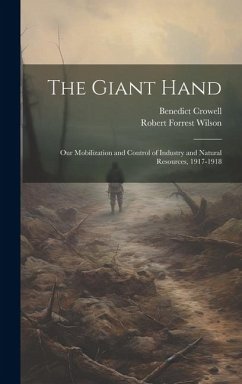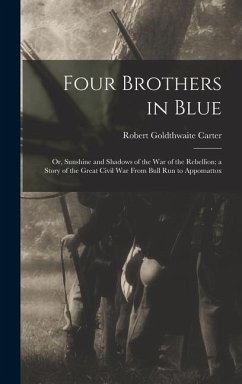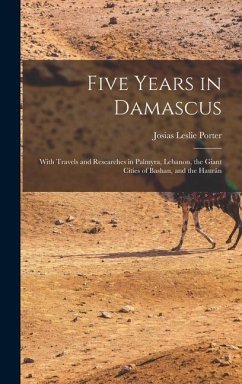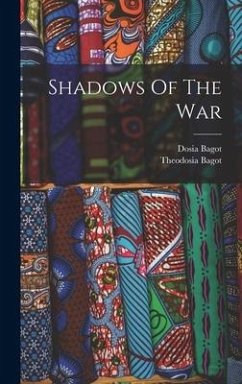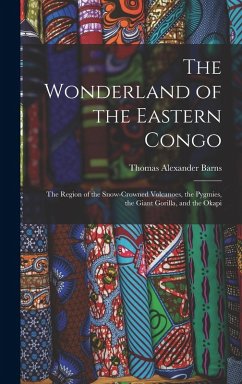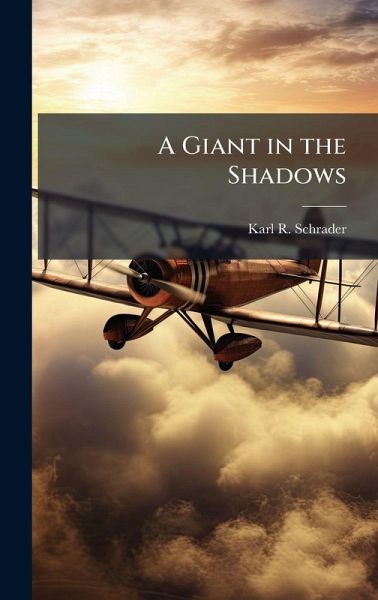
A Giant in the Shadows
Versandkostenfrei!
Versandfertig in über 4 Wochen
29,99 €
inkl. MwSt.
Weitere Ausgaben:

PAYBACK Punkte
15 °P sammeln!
This thesis examines the military career of Major General Benjamin Foulois to determine how his personal qualities and professional skill enabled him rapidly to build up and lead the air arm of the American Expeditionary Forces to victory in World War I. While previous academic works have focused on Foulois' early aviation career from 1909 to 1916 and his tenure as Chief of the Air Corps from 1931 to 1935, no treatment exists that details the vital role he played in the development of the American Air Service leading up to and during World War I. Foulois' personal and moral courage allowed him...
This thesis examines the military career of Major General Benjamin Foulois to determine how his personal qualities and professional skill enabled him rapidly to build up and lead the air arm of the American Expeditionary Forces to victory in World War I. While previous academic works have focused on Foulois' early aviation career from 1909 to 1916 and his tenure as Chief of the Air Corps from 1931 to 1935, no treatment exists that details the vital role he played in the development of the American Air Service leading up to and during World War I. Foulois' personal and moral courage allowed him to take on the weighty responsibility of designing and executing a $640 million plan to create a combat air force from scratch. After his poor performance as Chief of Air Service, this same courage enabled him to learn from his mistakes and return to the Air Service staff to complete the organizational buildup he started. His skill as a political infighter gave him the ability to advocate patiently for the air arm's interests within the halls of Congress and the War Department instead of following Billy Mitchell's example of using the blunt instrument of criminal accusations in the court of public opinion to effect change. Foulois' leadership record during the War was mixed; and he was much more effective as a logistician and troubleshooter for solving the Air Service's training, aircraft production, and contracting problems than as a combat leader on the front. While Foulois was one of the world's first writers on airpower theory, he chose to focus his later career on developing the technological and organizational innovations he felt were required in order to bring the airpower theories of others such as Mitchell, Giulio Douhet, and Hugh Trenchard to fruition. Foulois' leadership, tenacity, forward thinking, and organizational skill hold lessons for future Air Force leaders charged with a similar rapid establishment or expansion of new capabilities, such as a robust remotel This work has been selected by scholars as being culturally important, and is part of the knowledge base of civilization as we know it. This work was reproduced from the original artifact, and remains as true to the original work as possible. Therefore, you will see the original copyright references, library stamps (as most of these works have been housed in our most important libraries around the world), and other notations in the work. This work is in the public domain in the United States of America, and possibly other nations. Within the United States, you may freely copy and distribute this work, as no entity (individual or corporate) has a copyright on the body of the work. As a reproduction of a historical artifact, this work may contain missing or blurred pages, poor pictures, errant marks, etc. Scholars believe, and we concur, that this work is important enough to be preserved, reproduced, and made generally available to the public. We appreciate your support of the preservation process, and thank you for being an important part of keeping this knowledge alive and relevant.




